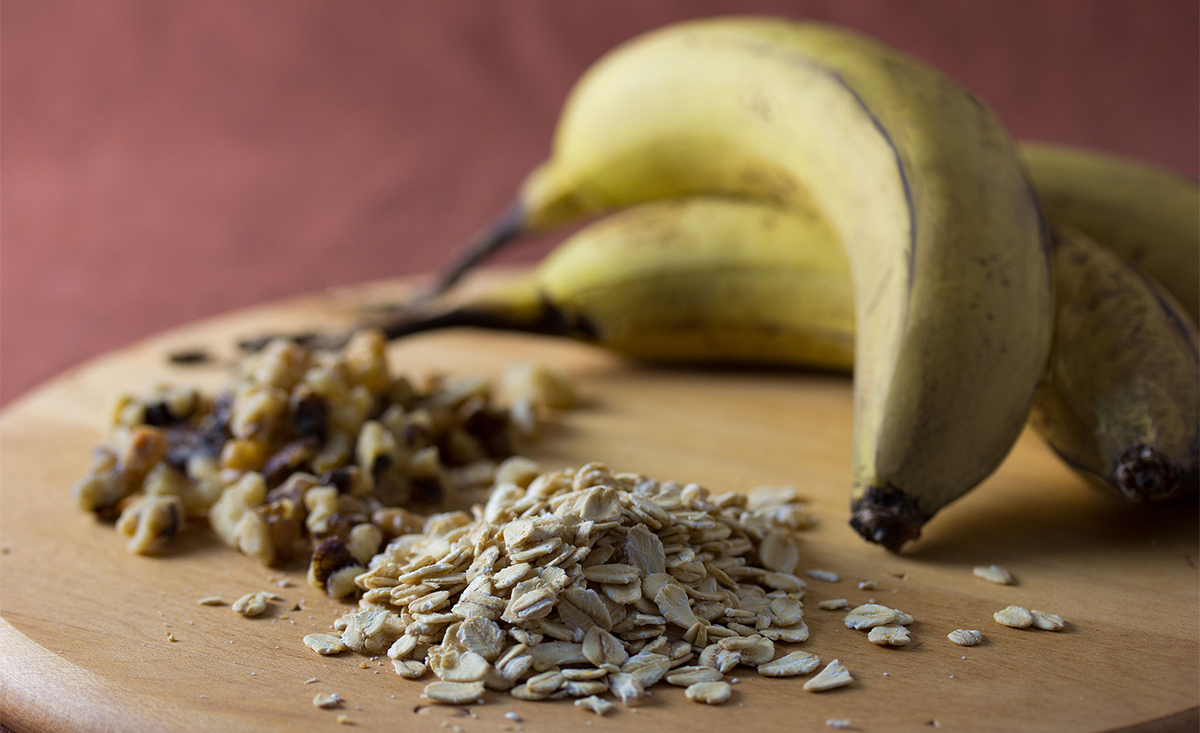Good Mood Food

by Jessi McLennan, NNCP
The food that we eat plays a huge role in not only our physical health but also our mental health. On a day to day basis, the types of food that we choose can either help to stabilize our mood by balancing blood sugar levels, or it can cause unbalanced fluctuations in blood sugar levels which can result in lethargy, poor concentration, agitation or moodiness.
Food also plays a crucial role in supplying the brain with the raw ingredients– in the form of vitamins, minerals, amino acids and other nutrients- that are essential for the productions of mood regulation hormones and neurotransmitters such as serotonin and dopamine.
Basically, the science of how food affects our moods is simple; dietary changes bring about changes in our brain structure, chemistry and physiology, which ultimately leads to changes in our behavior. Just as specific foods can help to improve your mood, there are certain foods that you should try to avoid or reduce as they have a negative effect on your overall mood.
Try to limit your intake of refined grains such as white flour and products made from them– also known as processed foods (bread, crackers, cookies, pastries, boxed cereal etc), and sugary foods. Processed foods and foods containing large amounts of added sugar can cause rapid fluctuations in blood sugar levels which can have a negative effect on your physical and mental health. These foods are also notoriously low in vitamins, minerals and other nutrients which are essential for normal brain health and function.
Eating a balanced, varied diet, full of natural, unprocessed foods is one of the easiest ways to make sure you are providing your body and more importantly your brain with all the ingredients it needs to help improve your overall health, wellbeing and happiness.
Top 5 Good Mood Foods.
 Bananas
Bananas
High in phenylalanine, an amino acids which can be turned into tryptophan which is then converted into serotonin. Bananas also provide a good source of B6 (low levels of B6 has been linked to depression) and potassium which helps to deliver oxygen to the brain.
 Nuts and Seeds
Nuts and Seeds
Especially nuts and seeds which contain omega 3 such as walnuts, hemp seeds, chia and flax seeds. Omega 3 (also found in fish) has been shown to decrease depression and improve mental health, even in people who don’t report being depressed. Nuts and seeds are also a great source of B vitamins – sometimes referred to as the anti-stress vitamins.
 Legumes
Legumes
Beans, peas and lentils are an excellent source of tryptophan one of the precursors to serotonin, they are rich in B vitamins and high in fiber which helps to stabilize blood sugar levels.
 Oats and other Whole Grains
Oats and other Whole Grains
Whole grains, such as oats, barley and quinoa (not technically a grain but a seed) provide a good source of B vitamins, iron, magnesium, antioxidants, fiber and tryptophan (oats are particularly high in tryptophan), key nutrient for the production of serotonin and the stabilization of blood sugar levels. Choosing whole grains instead of processed grains or products made with white (refined) flours improves overall nutrient intake during the day.
 Raw Cacoa Powder
Raw Cacoa Powder
Raw cacoa (the unprocessed version of coco powder) is perhaps the most potent of all the good-mood-foods. It is one of the richest sources of tryptophan and is high in theobromine a mild, non-addictive stimulant that some researchers believe can be used to treat depression. Cacao is also high in magnesium, a mineral which helps your muscles to relax and can help to reduce stress and muscle tension.
Enjoy a healthy and delicious recipe for Raw Chocolate Nut Clusters and other flavorful foods you can cook at home from our Paradise Valley Healing Center Chef’s Recipes.
Here at the center, we recognize that healthy conscious eating is a cornerstone of wellness for everyone. We also offer a healthy weight program to help clients build a positive, healthful relationship with their bodies and the foods they eat.
